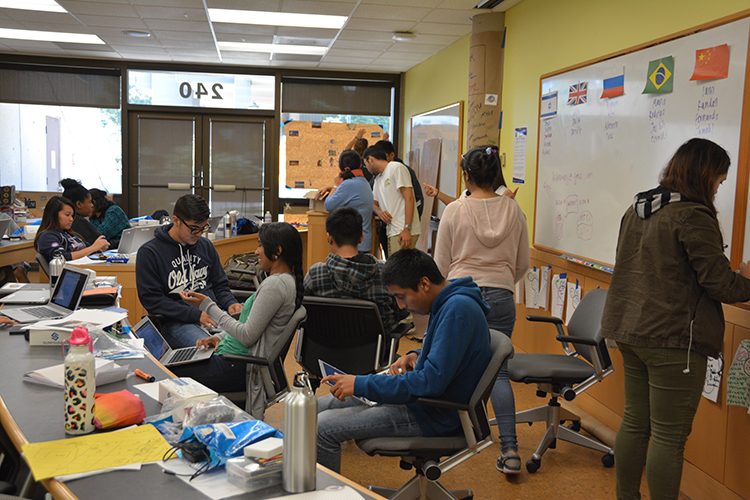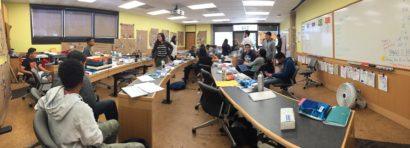Teens trained to fight virtual crime at CYBEAR camp
Twenty-three high schoolers enrolled in a class that's part of a National Science Foundation and the National Security Agency initiative

July 22, 2016
Twenty-three Bay Area high school students are bolstering their cybercrime-fighting skills in a six-week course at UC Berkeley.
CYBEAR is the UC Berkeley version of the GenCyber initiative created by the National Science Foundation and the National Security Agency. The initiative aims to prepare more workers for cybersecurity careers in government and private industry.
High schoolers from Richmond to San Jose are taking part in CYBEAR, now in its second year. Activities include a trip to the Computer History Museum in Mountain View, a tour of the FBI offices in San Francisco and an international cyber warfare simulation.
The students also built a model “Smart Oakland” using Lego blocks and Raspberry Pi units, small and inexpensive computer chipboards designed to help young people learn to program and work with hardware.
Neha Venkatesh, a senior at Salesian High School in Richmond, worked with a team of other teens to build a “smart sanitation” system of garbage receptacles for the “Smart Oakland” project. The waste bins sense when they are full and ready for pickup, thus alleviating traffic in the mock city by keeping excess garbage trucks off the roads.

Students work on their “Smart Oakland” projects in the UC Berkeley Bechtel Engineering Center. (Hulda Nelson, UC Berkeley photo)
“It’s great to work with everyone because they’re from different schools and different places,” Venkatesh says. “I was attracted to this camp because it was at Berkeley, especially since I want to study computer science. It’s given me an idea of what it would be like to walk into a class here. It’s like I’m actually taking a college class.”
According to Carolyn Winter, a program manager in Electrical Engineering and Computer Sciences, “CYBEAR responds to a need in the country for people with more training in cybersecurity.” The NSA and Berkeley also prioritized recruiting teens from diverse backgrounds and communities, Winter adds.
The course is free to students, and Berkeley received funding from the NSA to cover class expenses.
